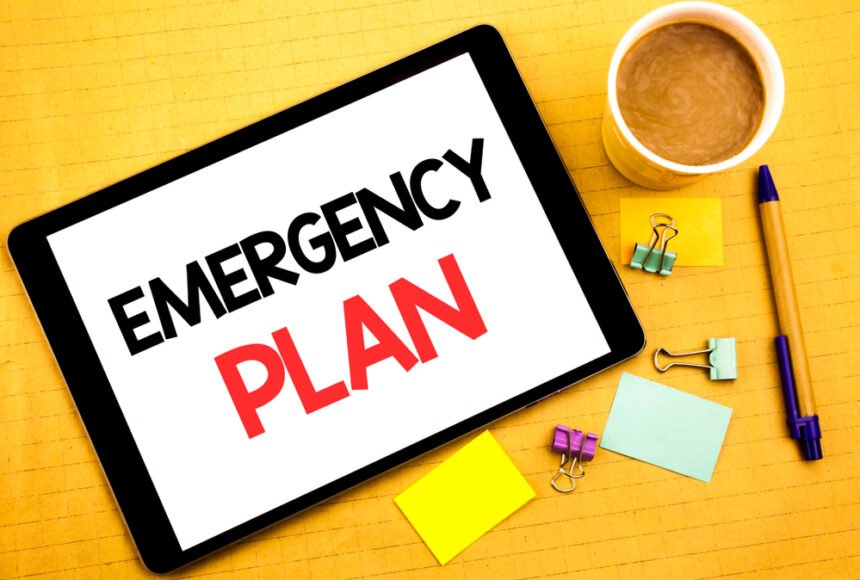Across the United States and the entire globe, we’ve seen more than our fair share of disasters in the last few years. From devastating wildfires to COVID-19 to intensifying hurricanes, the need for emergency preparedness has been growing and growing. As climate change intensifies, we can expect to see even more natural disasters resulting in injuries, deaths, and destruction.
While this is a grim prospect, it has inspired some people to step up and make a difference. Some saw how hospitals had to scramble when COVID-19 patients began to flood ICUs, while others witnessed the landfall of major hurricanes. If you’ve been moved to pursue a career in emergency preparedness, you really can help people who are going through the most difficult times of their lives.
Think you have what it takes? Here’s what you need to know about becoming an emergency preparedness administrator.
What Does an Emergency Preparedness Administrator Do?
Hospitals are designed for business as usual: they have data to predict how many patients they can expect and they try to optimize for that number. This is a great way to save money and serve the needs of most patients. But when disaster strikes and the emergency room is flooded with injured or sick patients, a hospital needs to be able to pivot.
That’s where an emergency preparedness administrator comes in. It’s their job to create emergency response plans for disasters like weather events and pandemics. They also need to train hospital staff and be prepared to lead in times of trouble. A good emergency preparedness plan can literally mean the difference between life and death for those affected by a large-scale emergency.
Education Requirements for Emergency Preparedness Administrators
People who prepare hospitals and government agencies for potential disasters must be highly trained professionals. Determination and passion are important, but emergency preparedness administrators must also be highly organized, understand all the moving parts of a hospital or agency, and learn to stay calm under pressure.
The first step in becoming a preparedness expert is to earn a four-year degree. Generally, a bachelor’s degree in emergency management, public health, or a similar field is the best choice. However, that’s just the basic requirement. Most emergency preparedness administrators gain experience as EMTs or work in an emergency room.
A master’s degree, although not necessarily a requirement, helps emergency preparedness administrators to gain new skills and to become more competitive in the job market.
Certifications Needed to Become an Emergency Preparedness Administrator
Nationally, there is no required certification for emergency preparedness administrators, but many individual organizations insist that all candidates be certified. Even if it’s not required, getting certified gives candidates a competitive edge. Plus, it helps to ensure that emergency preparedness administrators are qualified and competent to take on this crucial role.
The basic Associate Emergency Manager (AEM) certification requires 100 hours of emergency management training, passing an exam, and writing an essay. The Certified Emergency Manager (CEM) is much more rigorous, requiring a bachelor’s degree, professional experience, and contributions to the field. Emergency preparedness administrators who want to grow in their careers will eventually want to complete the CEM certification.
Emergency Preparedness Administrator Roles and Responsibilities
How do emergency preparedness administrators successfully prepare for the worst? They juggle many different responsibilities in planning, training, and execution, and they must be ready to act on a moment’s notice. They must also collect data on an ongoing basis to monitor new potential threats.
Administrators begin by assessing risk and “predicting” worst-case scenarios. They must then communicate these risks to hospital administrators and create a plan for dealing with them should they occur, while sticking to a realistic budget. They are also responsible for creating and executing training plans and knowing when to active emergency protocol.
Understand the Changing Landscape of Hospitals & Healthcare
Today’s emergency preparedness administrators are not only dealing with intensifying disaster, but they also have to understand and navigate the changing landscape of the healthcare field. Today’s hospitals are getting “smarter” all the time and rely on technology for their daily operations.
This presents new challenges and opportunities. Technology can be harnessed in emergency plans to save lives, but it can also be a liability should infrastructure go down or a breach risk the security of the network.
It’s an understatement to say that emergency preparedness roles are challenging. But if you’re willing to put in the work and to dedicate yourself to helping others, there are few career paths that will ultimately be more satisfying and contribute more to your community.







